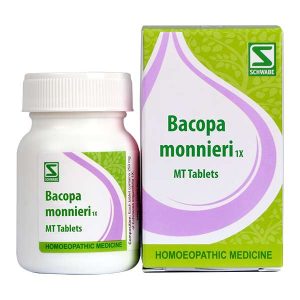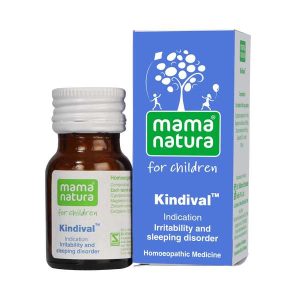
Hyperactivity
-
-18%
 Rated 4.33 out of 5 based on 3 customer ratings(3)
Rated 4.33 out of 5 based on 3 customer ratings(3)₹175.00₹143.50 You Save: ₹31.50 (18%)Add to cart -
-18%
 Rated 4.50 out of 5 based on 2 customer ratings(3)
Rated 4.50 out of 5 based on 2 customer ratings(3)₹125.00₹102.50 You Save: ₹22.50 (18%)Add to cart
Showing all 2 results
Often people consider hyperactivity to be a disease. It’s not a disease, but just a state of being oddly and abnormally active. A hyperactive child usually finds it a struggle to adjust in a group or social circle. Other children also face difficulty to be around someone who is hyperactive. There is a lot of unutilized energy which causes a state of depression and anxiety if not dissipated. It is very difficult to stay put. There is a constant need to do something. Hyperactive persons may develop low self-esteem or problems due to their inability to stay still and concentrate on one single activity.
This leads stress building up among student-teacher relationships, strain with friends and chaos in the family environment. Also, hyperactive children find difficulties in finishing schoolwork. Unable to fit in social groups, the depressed child might get involved in bad company or use of drugs and alcohol intake. Hyperactivity is a classic sign of attention seeking behavior otherwise known as ADHD (Attention Deficit Hyperactivity Disorder). So, the parents and teachers should try creative and encouraging strategies like playing while doing some activity, taking time breaks, giving second chances while dealing with a hyperactive child.
Different characteristic behaviors shown by hyperactive children are:
- Talking constantly or frequently
- Bumping into things
- Constant movement
- Aggressive behavior
- Impulsive behavior
- Being easily distracted
- Trouble sitting quietly
- Blurting things out
- Adults with hyperactivity issues may show the following behavior:
- Difficulty in concentrating at work
- A short span of attention
- The inability to retain information such as remembering names, numbers or places becomes hard.
Impact of Hyperactivity
Hyperactivity means having trouble to maintain attention, showing impulsive behavior, increased activity, talking constantly, moving continuously. A child is very difficult to manage because of his inability to concentrate on whatever is being told and taught. He is very aggressive physically and exuberant emotionally. Instead of blaming the child and punishing him/her a parent/guide/teacher should understand that many medical conditions can lead to such kind of behavior.
ADHD
Apart from many other medical conditions, ADHD is listed on the top that frequently comes under suspicion when a child is shown a hyperactive behavior. ADHD is a brain-based disorder that causes the children to become overactive, inattentive, and impulsive. These children start behaving weird and needy, which becomes difficult for parents to manage. They start doing activities like keep moving around, talking too much, etc. Although ADHD is diagnosed earlier in life during childhood, some people may experience ADHD as adults.
Other causes for hyperactivity include:
- Central Nervous System disorders
- Emotional/ psychological disorders
- Hyperthyroidism.
Hyperactivity can be managed with behavioral intervention strategies. These strategies help in controlling the motor activity as well as in reducing stress among the child and teacher/guardian.
What are the possible risk factors?
Studies are still carried out to find the possible cause for hyperactivity and ADHD. Scientists believe that several factors can contribute to such peculiar behavior patterns, such as:
- Genetic code
- Habits like cigarette smoking, alcohol use, or drug during pregnancy
- Exposure to the toxic environment during pregnancy
- Exposure to environmental toxins, like high levels of lead, at a very young age
- Low birth weight
- Brain injuries
How to manage the Hyperactivity?
While research is still being carried out on how a hyperactive child or person should be reassured and managed, some interventions like medication and psychotherapy along with education and training will help in reducing the symptoms and improving the functioning.
Therapy for Hyperactive Children or Person :
Cognitive behavioral therapy: The main aim is to alter the pattern of behavior, thereby changing the mode of thinking.
Talk therapy: This therapy helps you to cope with your current situation and therefore reduce its effects. It involves taking out and discussing your problems with a therapist.
Behavioral intervention plans: The plan is creating different strategies and calming the child by getting him occupied and busy in various activities.
Therapies and techniques for parents and guardians on how to deal with a hyperactive person are also available. These education and training programs are necessary to build a good bonding with their child and to overcome negative feelings if any.
Stress management techniques: It can surely benefit parents of children with ADHD and hyperactivity by increasing their ability to deal with frustration, irritability, and anxiety, so that they can respond calmly to their child’s behavior.
Support groups: These groups can help parents and families to connect with others who are facing similar challenges with a hyperactive person.
Medication:
When therapy is not sufficed, the help of medicine is required. There are various medicines for hyperactivity, conventional as well as homeopathic. These medicines have a very calming and soothing effect. Homeopathic medicines work on the universal principle of ‘like cures likes’.
The advantage of using homeopathic medicine over a conventional mode of practice is that it focuses on the individual by considering the miasm, constitution, diathesis, and temperament. Many homeopaths generally prescribe medicine for hyperactivity in their routine practice such as Anacardium, Aethusa cynapium Argentum nitricum, Baryta carbonicum, Calcarea carbonicum, Coffea, Chamomilla, Cypripedium, Nux vomica, Phosphorus, Phosphoric acid,Tuberculinum, Zincum metallicum, Valeriana.
Other Homeopathic specialities and formulations for Hyperactivity: Bacopa monnieri 1X, Kindival. These medications can be prescribed for both adults and children.
Other possible apparent symptoms that can be present along with hyperactivity:
- Impulsivity
- Delayed development
- Seizures
- Mood swings
- Behavior problems
- Microcephaly
- Coma
- Apnoea
- Difficult concentration
- Easily distracted
- Agitative
- Anxiety
Some tips for parents/guardian/partner/teachers to help a hyperactive child or to stay organized:
For a hyperactive child:
- Flowing and maintaining a routine and a schedule. By keeping a record and following the same routine every day, from wake-up time to bedtime a hyperactive child can be organized. These include planned and systematized timetable for homework, outdoor play, and indoor activities.
- Organizing and keeping everything in its place and organizing every day will help set a disciplined routine. This includes organizing clothing, schoolbag, homework, other school supplies and toys.
- Being clear and constant.
- Instead of criticism and punishment try understanding the child and encourage him/her to follow the routine. Give praise or rewards to the child when rules are followed.
For Adults:
- Keep routines
- Make a list for different chores.
- Use a calendar and mark it for scheduling events
- Set reminders.
- Arrange everyday items, bills, and paperwork
- Take small steps, break larger tasks to handy ones.
Blog Post


Effects of Diabetes, Smoking, and Other Factors on Sexual Health


Plant-based Protein vs. Animal Protein: Which is Better for Your Health?





























